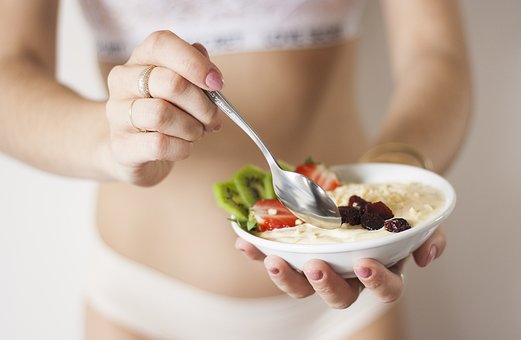Weight loss is a common goal for many people, and there are countless products and diets that claim to be the solution. One such product is probiotics, which are often marketed as a way to aid in weight loss. But is there any truth to these claims? In this blog post, we’ll explore the research on probiotics and weight loss and what the evidence says.
What are Probiotics?
Probiotics are live bacteria and yeasts that are beneficial for your gut health. They can be found in a variety of foods, such as yogurt, kefir, sauerkraut, and kimchi, as well as in supplement form. Probiotics work by promoting a healthy microbiome in the gut, which can improve digestion and alleviate a range of digestive issues.
The Link Between Gut Health and Weight Loss
There is a growing body of research that suggests that gut health may play a role in weight management. A healthy gut microbiome can help regulate metabolism, reduce inflammation, and improve insulin sensitivity, all of which can contribute to weight loss.
1. Metabolism
The gut microbiome plays a crucial role in regulating metabolism. Studies have shown that people with a healthy gut microbiome have a more efficient metabolism and are more likely to maintain a healthy weight.
2. Inflammation
Chronic inflammation has been linked to obesity and other metabolic disorders. A healthy gut microbiome can help reduce inflammation and promote a healthy weight.
3. Insulin Sensitivity
Insulin is a hormone that regulates blood sugar levels. Insulin resistance, which occurs when the body becomes less responsive to insulin, is a risk factor for obesity and other metabolic disorders. A healthy gut microbiome can improve insulin sensitivity and reduce the risk of insulin resistance.
The Evidence on Probiotics and Weight Loss
While the research on probiotics and weight loss is still in its early stages, there have been several promising studies that suggest probiotics may be beneficial for weight management.
1. Reduced Body Weight and Fat Mass
A study published in the Journal of Functional Foods found that a probiotic supplement containing Lactobacillus rhamnosus and Bifidobacterium lactis reduced body weight and fat mass in overweight and obese adults. The study also found that the probiotic supplement improved insulin sensitivity and reduced inflammation.
2. Reduced Belly Fat
A study published in the Journal of Nutrition found that a probiotic supplement containing Lactobacillus gasseri reduced belly fat in overweight and obese adults. The study also found that the probiotic supplement improved body composition and reduced inflammation.
3. Improved Insulin Sensitivity
A study published in the European Journal of Clinical Nutrition found that a probiotic supplement containing Lactobacillus acidophilus improved insulin sensitivity in overweight and obese adults. The study also found that the probiotic supplement reduced inflammation.
Choosing the Right Probiotic for Weight Loss
Choosing the right probiotic for weight loss is important to ensure that you get the maximum benefits. Here are some factors to consider when choosing a probiotic:
1. Strain
Different probiotic strains have different benefits, so it’s important to choose the right one for weight loss. For example, Lactobacillus and Bifidobacterium have been shown to be effective in reducing body weight and fat mass in overweight and obese adults.
2. Colony Forming Units (CFUs)
CFUs refer to the number of living bacteria in a probiotic supplement. It’s important to choose a supplement with an adequate amount of CFUs to ensure that you get the maximum benefits.
3. Quality
Choose a probiotic supplement from a reputable brand that has been tested for quality and purity.
4. Form
Probiotics are available in various forms, including capsules, powders, and liquids. Choose a form that is convenient for you to take and fits your lifestyle.
Incorporating Probiotics into Your Diet
Incorporating probiotics into your diet is easy and can be done through food or supplements. Here are some ways to incorporate probiotics into your diet:
1. Yogurt
Yogurt is a delicious and convenient source of probiotics. Look for yogurt that contains live and active cultures, such as Lactobacillus and Bifidobacterium.
2. Kefir
Kefir is a fermented milk drink that is high in probiotics. It’s also a good source of calcium and protein.
3. Sauerkraut
Sauerkraut is a fermented cabbage dish that is high in probiotics. It’s also a good source of fiber and vitamin C.
The Bottom Line
While probiotics may have some benefits for weight loss and management, they should not be relied upon as a sole solution.







